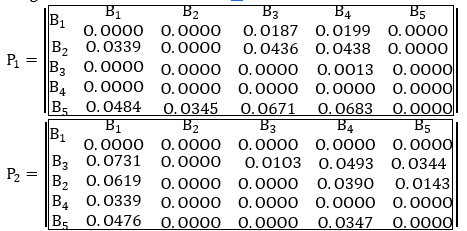Application of Neutrosophic Multi-Criteria Decision-Making Techniques for Assessing Violations of Child Support Rights
Keywords:
Multicriteria Evaluation, Neutrosophy, Uncertainty, Ambiguity, Advanced Analysis, Decision Making, Divergent Perception, Corrective Policies, Robust Analysis, Human Rights, Neutrosophical ApproachAbstract
The study addresses a crucial challenge in the analysis of rights violations by applying neutrosophic methods. Specifically, it investigates how multi-criteria assessment tools can provide a more precise and nuanced approach to addressing rights violations, a topic that remains of global relevance, given the complexity and diversity of situations that occur in different contexts. The existing literature, although abundant in human rights studies, often lacks approaches that integrate the uncertainty and ambiguity inherent in these cases, limiting the effectiveness of conventional analyses. This work fills that gap by implementing a neutrosophic approach that captures these dynamics more effectively and adequately. Using the neutrosophic-based multi-criteria assessment methodology, the study employs advanced techniques to manage and model the indeterminacy present in human rights violations. The analysis undertaken reveals that this approach allows for a more complete and robust assessment of the circumstances of rights violations, by integrating the divergent perceptions of the experts and actors involved. The findings underline how this approach improves decision-making in scenarios where situations are not entirely clear or definitive. The study's contribution lies in offering a more precise and practically applicable methodology for human rights assessment, allowing for a more nuanced and reliable analysis that can influence policies and corrective actions at a global level.
Downloads

Downloads
Published
Issue
Section
License
Copyright (c) 2024 Neutrosophic Sets and Systems

This work is licensed under a Creative Commons Attribution 4.0 International License.


